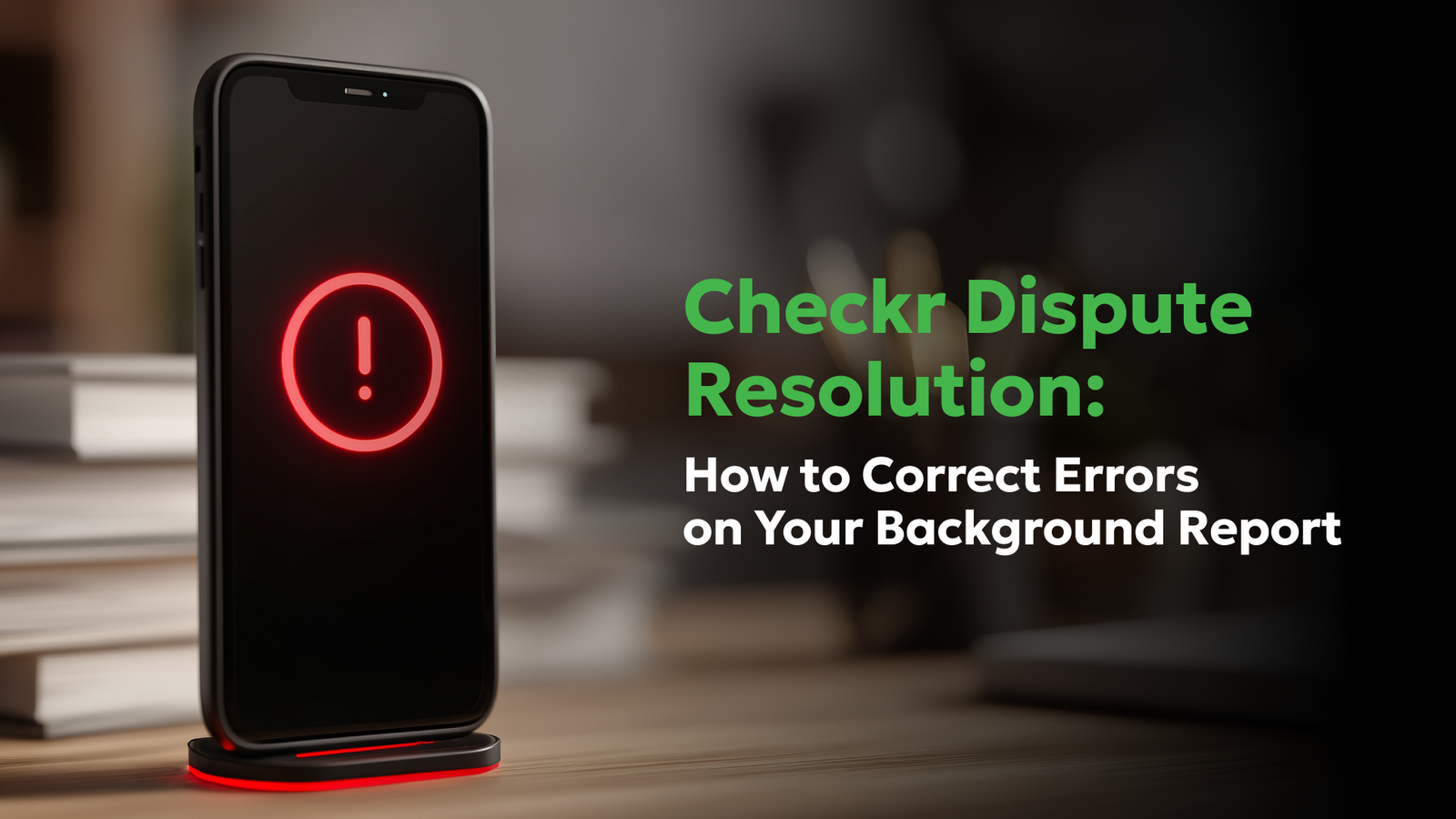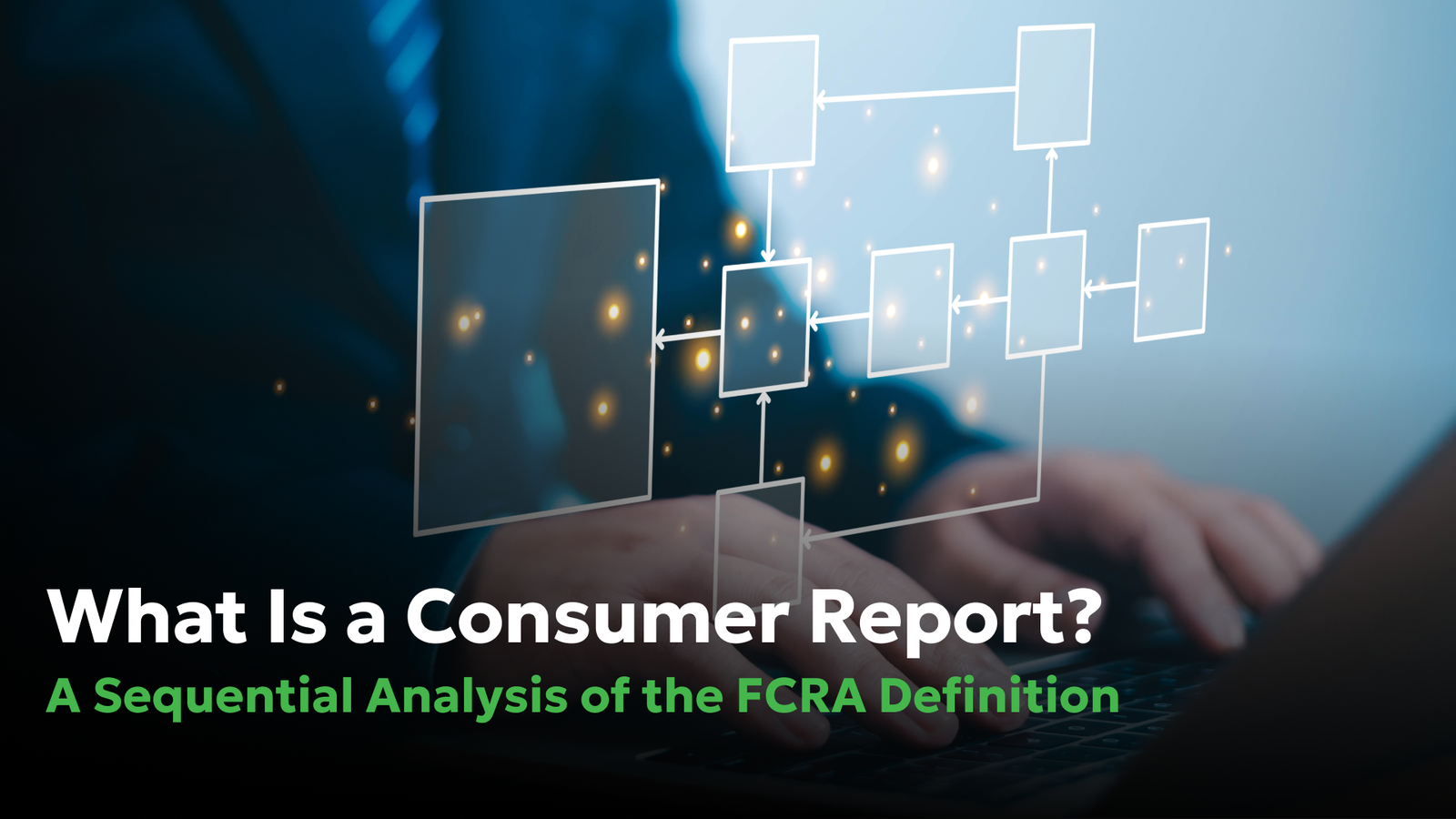Accurate Examples of Fair Credit Reporting Act Violations
- Blog
- All about FCRA
Accurate Examples of Fair Credit Reporting Act Violations

We’ve Got the Top 10 Examples of Fair Credit Reporting Act (FCRA) Violations. Learn How to Fight Back!
We discuss the most frequent FCRA violations and what you can do about them. The Fair Credit Reporting Act provides the rules that Consumer Reporting Agencies (CRAs) like Equifax, Experian, and TransUnion must follow when they supply lenders with your credit report. When a CRA violates these rules, your financial and mental health are in jeopardy.
Even though it was passed over a half-century ago, the Fair Credit Reporting Act (FCRA) is more important than ever. The passage of the FCRA in 1970 was a big moment in consumer rights. Before the FCRA became law, consumers had little control over the information compiled about them in credit reports and little recourse when that information was wrong, abused, overshared, ignored, or otherwise mishandled. While credit has been around since a pioneer could walk to the general store and ask the storekeeper to put their sasparilla on their tab, by the end of the 20th century, it was clear that credit was becoming more critical and decisions about who would get credit were made based on scores and numbers instead of dusty handshakes.
Your Rights Under the FCRA
The FCRA established the legal framework governing collecting, compiling, distributing, and using a person’s financial information. The FCRA guarantees consumers have rights, including:
- The right to access and review their credit information
- The right to dispute inaccuracies
- The right to be informed of the use of their credit data in decisions affecting them.
The FCRA empowers consumers to take control of their financial information. It also establishes responsibilities and obligations for any company, organization, or entity that handles consumer information. We tend to associate the FCRA with the three major consumer reporting agencies (CRAs), Equifax, Experian, and TransUnion. There are hundreds - maybe thousands - of other companies that gather, organize, sell, and profit from consumer financial information. Anyone who deals with consumer information must obey the FCRA.
This is why it’s not only still around - but relied on more than ever. More data is being sent through cyberspace than ever before, more ways to access that data, more ways to profit from that data, and more people trying to get their hands on that data.
You might think, “I don’t have any data!” and “I barely have enough in my checking account to pay rent, no one wants my data!” That is not true. Even something as seemingly mundane as what you buy at the grocery store, how often you buy it, and the methods by which you buy it - is all data. And to certain companies, it is extremely valuable.
And sometimes, credit decisions that affect your life in big ways are made based on that data. As a credit report lawyer, I see these violations every day and witness firsthand the devastation that a credit report error can create for someone and the people they love.
This article provides an overview of the FCRA, the ten most common ways that companies violate the FCRA, and what you - an ordinary consumer at the grocery store - can do about it. (Hint: when a company breaks a law, it is often up to the people to hold them accountable, and people often need an advocate to help them.)
Who Must Obey the FCRA?
Not just anyone can access your credit information. The FCRA sets strict guidelines on who gets that privilege. When you apply for a mortgage, automobile financing, an apartment, a credit card, any type of loan, a job, or any other endeavor where a decisionmaker wants to evaluate your financial background, the creditor or lender will get a report from one or more of the three big CRAs. But anyone who uses, gathers, sells, or distributes consumer data must obey the FCRA. They all must follow the rules about how they use, share, and handle your credit information.
If they don’t obey those rules? You lose the opportunity to buy a home or a car, take a loan, rent a home, get that job, or whatever other opportunity you were pursuing when you applied for credit. And you losing opportunities because of someone else’s error or violation is not fair.
Top 10 Most Common FCRA Violations
What is a violation of the Fair Credit Reporting Act? There are limitless ways a CRA can violate the FCRA. These are the most common Fair Credit Reporting Act violations that the attorneys at Consumer Attorneys have seen most often in their decades of experience fighting for consumers. These are the ones that most often hurt consumers, unsettle us most, and result in us filing the most lawsuits to get people compensated for the damage these violations caused.
1. Right to Privacy Violations
Your credit report is private. It's as simple as that. The interest rate you pay on your car loan, how much you borrowed to pay for school, and the factthat one time you missed rent because you were unemployed are all your business. And you get to decide who sees it. When someone accesses it without a legitimate reason or, worse, without your permission, it’s an invasion of your privacy. This violation occurs more often than you’d think, with entities sometimes pulling credit reports for reasons not permitted by law or running credit checks without authorization, leaving consumers vulnerable.
2. Data Breaches
Data breaches are a type of privacy violation by creditors who hold, store, or have your data but do not take adequate precautions to protect that data from cyber criminals. This standard is evolving. Reasonable cybersecurity measures will be inadequate in the very near future. When you hear of data breaches in the news or get direct notice that one has occurred, take note and monitor your credit and accounts diligently. If you suffer injury as a result of the breach, you could have a claim.
3. Accuracy Violations
Section 1681e(b) of the FCRA requires anyone furnishing or distributing consumer information to use “reasonable care” to ensure its accuracy. Accuracy is non-negotiable. This is because when errors and inaccuracies appear in your credit report, the potential lender or decisionmaker is not getting an accurate picture of you, your financial history, and your creditworthiness. Carelessness leading to mistakes is a violation of your rights that has potentially wide-reaching consequences for your financial life. Also, it doesn’t matter how big or how small the inaccuracy might be. A misspelled street name, a wrong Social Security number, a birthday that’s one digit off, a closed account reported as open, a wrong credit limit, or any minor typo or mistake can have huge consequences.
4. Dispute Investigation Violations
When errors and inaccuracies appear, the FCRA requires the CRA to investigate and fix them quickly - within 30 days. Then the CRAs must tell you the results of their investigation. Ignoring or not handling your disputes promptly leaves that erroneous information on your report and costs you opportunities. It’s also a violation of the FCRA. In addition to the time requirement for investigations, they must also be conducted adequately. CRAs have a habit of undertaking shoddy investigations that end up “confirming” the disputed errors as accurate. Inadequate investigations are also an FCRA violation.
5. Permission Violations
Not everyone has a right to peek at your credit report. The FCRA outlines the precise, permissible purposes for these requests, like credit applications or employment considerations. Requests outside these reasons are violations, undermining your control over personal financial information.
6. Identity Theft Violations
The aftermath of identity theft is chaotic and stressful. CRAs and creditors must act promptly to secure your credit information and correct any fraudulent entries. Neglecting this responsibility exacerbates your plight and violates your rights under the FCRA.
7. File Preparation Violations
Part of the “reasonable care” requirement of the FCRA mandates that every CRA use reasonable care in preparing a credit report. Another symptom of a CRA failing to use reasonable care is complete file mix-ups. Imagine a mortgage company denying you a mortgage, and when you ask why the mortgage company presents you with a credit report with someone else’s information on it? How did that happen? By the time you get it straightened out, well, the house went to someone else. Unfortunately, this really happens to consumers every single day. CRAs must be diligent in collecting and verifying your credit information.
8. File Update Violations
Your credit report must reflect your current financial situation. Any time a CRA fails to update your information or continues to report outdated details, it is not just making a mistake; it is violating the FCRA. This leads to unjust financial repercussions for you. Again, even one minor error can have enormous consequences. Sometimes these mistakes are subtle. For example, an account you closed out is still listed as open, the lender thinks you have more debt than you do, raises the interest rates on your loan to minimize their risk, and you pay more for the loan than you should.
9. Review Violations
You have the right to know what’s in your credit report. The FCRA requires that CRAs provide you with one free credit report per year. That rule has since evolved so that the three main CRAs now provide a free credit report weekly. Any attempt by CRAs to not send you your credit report, to make you pay for information, to minimize the information, to obscure the information, or to create hurdles for you to access your information is a violation of your rights.
10. Notice Violations
When a lender, employer, mortgage company, credit card company, landlord, or financing company takes an adverse action against you based on your credit report, you deserve to know what and why. The FCRA gives you the right to know that an adverse has been taken against you and to know exactly which information in your credit report or background check report was relied on to deny you the opportunity in question. If you do not receive adequate notice of these actions, you do not have the necessary information to address and fix the issues.
What to Do If A CRA Violates the FCRA
If you think a consumer reporting company has violated your rights or the FCRA, the first thing you should do is contact a consumer rights attorney. There are countless violations of the FCRA, limitless ways that credit bureaus violate the FCRA, and violations by credit reporting agencies no one has seen yet. But if you think someone has violated your rights under the FCRA, they likely have. Even if you can’t squarely put what the consumer reporting agency has done into one of the above violations, if it feels wrong to you, it likely is. If you think it might be a violation but are unsure, contact an attorney at Consumer Attorneys for a case review and consultation with no out-of-pocket costs Our knowledge of federal and state laws lets us recognize the violations and build a plan for recovery.
Here are some things to remember:
- You have the right to seek compensation. The law exists to protect and reimburse people who have been injured. If an automobile ran a red light, crashed into you, and you hurt your neck, you would sue them for violating traffic laws and causing you injury. Holding a CRA accountable is no different. If it violates a law and you get injured, you have the right to file a lawsuit seeking compensation.
- You have the right to accuracy. We’ve mentioned the “big three” CRAs, Equifax, Experian, and TransUnion, with some frequency. There are dozens of others. Background check companies, smaller consumer reporting companies, specialized reporting companies for tenant screening or employment screening, or anyone else tasked with reporting on you must follow the FCRA also. If someone is profiting from your data, they must treat it with care.
- You should regularly review your reports. Part of maintaining good financial health is periodically reviewing your credit reports. You can get a free credit report from the big three CRAs every week; for most others, you get a free credit report annually. The same is true with background check companies. Request it. Review it. Note errors. Contact us. You can contact Consumer Attorneys any time. Contact us after you review your report and find a misspelling; contact us when you suspect identity theft; contact us when you lose a job because of a mixed-up employment background check.
Get in Touch Now to Get Started
FCRA violations hurt your financial, emotional, and mental health. Talking with a consumer protection attorney at Consumer Attorneys can help. We will listen to you, get the details of your case, apply the relevant law, offer legal advice, and, if appropriate, represent you. This could mean suing for FCRA violations and holding the CRAs accountable by getting you the corrections and compensation you deserve.
- Call us at 1-877-615-1725
- Email us at info@consumerattorneys.com
- Visit our website and 1) talk to a live consultant online, or 2) fill out a contact form.
We’re ready to help. We have vast experience identifying violations of the Fair Credit Reporting Act and suing in federal court. If someone violated your rights under the FCRA, contact us today, and let’s take the first step toward safeguarding your financial future.
Frequently Asked Questions
Yes, you can sue an entity that violates the Fair Credit Reporting Act (FCRA). This federal law ensures the accuracy, fairness, and privacy of information by consumer reporting agencies and background check companies. You have legal options if a credit bureau, creditor, or any other entity violates the FCRA or your rights under the FCRA, such as by reporting incorrect information or misusing your credit information. Consumer Attorneys will help you determine which course of action is best for you, including whether to file a lawsuit. You may be entitled to compensation, and your attorney's fees and costs are covered by the CRAs when you settle or win.
The 30-day rule of the Fair Credit Reporting Act (FCRA) is a rule that says that consumer reporting agencies, background check companies, and other entities that store or distribute your personal and financial information must respond to disputes within 30 days of receiving that dispute. What kind of disputes? Consumers can dispute incorrect, outdated, or false information in their background and credit reports. Such disputes are common and necessary. If you find any inaccurate information in your credit or background check report, contact Consumer Attorneys and we can help you.
The Fair Credit Reporting Act (FCRA) was passed in 1970. Since then, it has been amended and updated frequently in response to consumer needs, commercial trends, and new technology. There are a few updates for 2024. First, the FCRA mandates consumer reporting agencies send file information to consumers upon request. Consumers are entitled to one free disclosure annually, with certain conditions allowing for additional free disclosures. There is a new cap for 2024 of $15.50 for what credit bureaus and background check companies can charge. There is also a new form that credit bureaus must give to consumers alerting consumers to their rights.


Daniel Cohen is the Founder of Consumer Attorneys. Daniel manages the firm’s branding, marketing, client intake and business development efforts. Since 2017, he is a member of the National Association of Consumer Advocates and the National Consumer Law Center. Mr. Cohen is a nationally-recognized practitioner of consumer protection law. He has a we... Read more
Related Articles




R
ONGS™You pay nothing. The law makes them pay.







